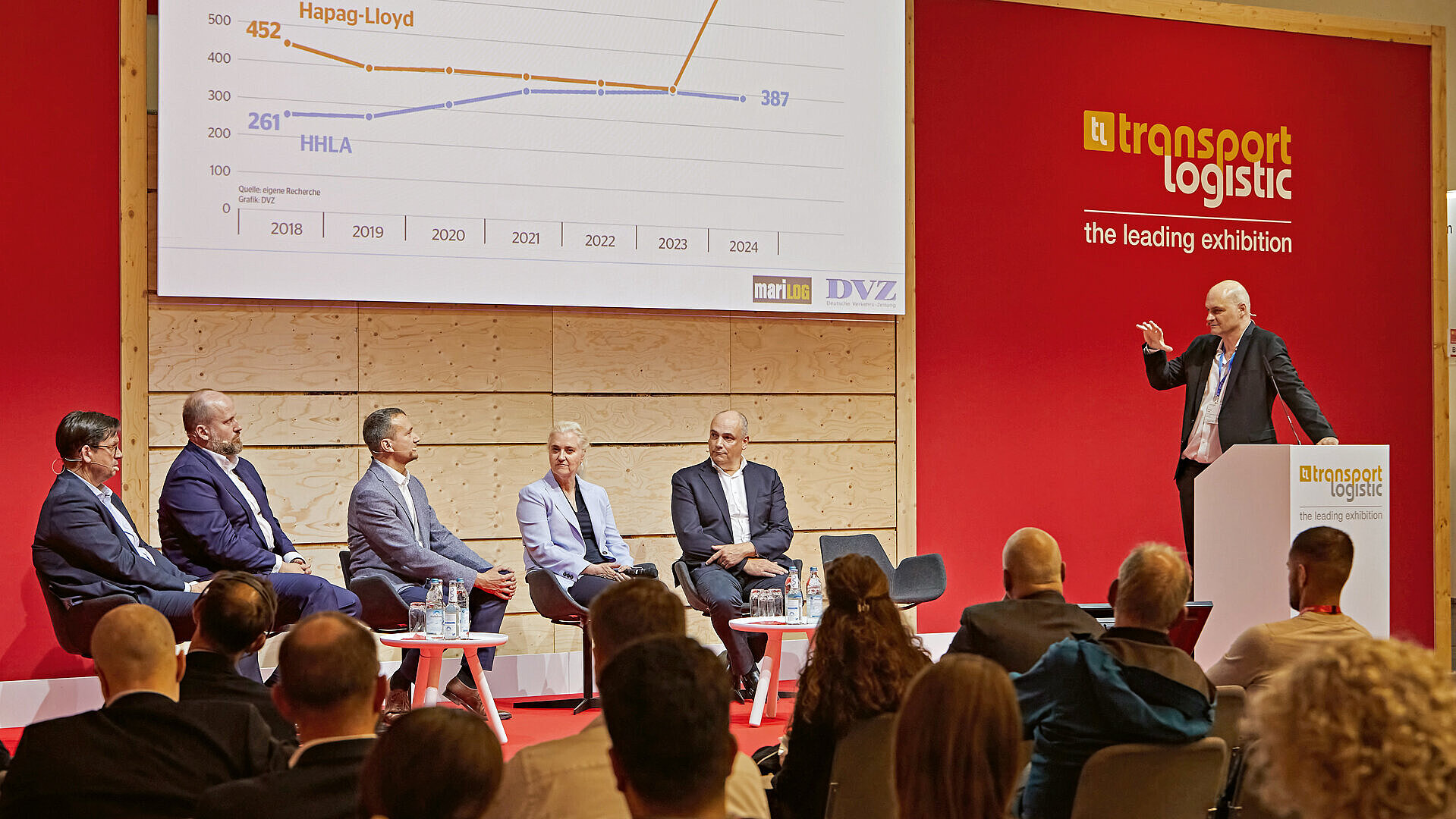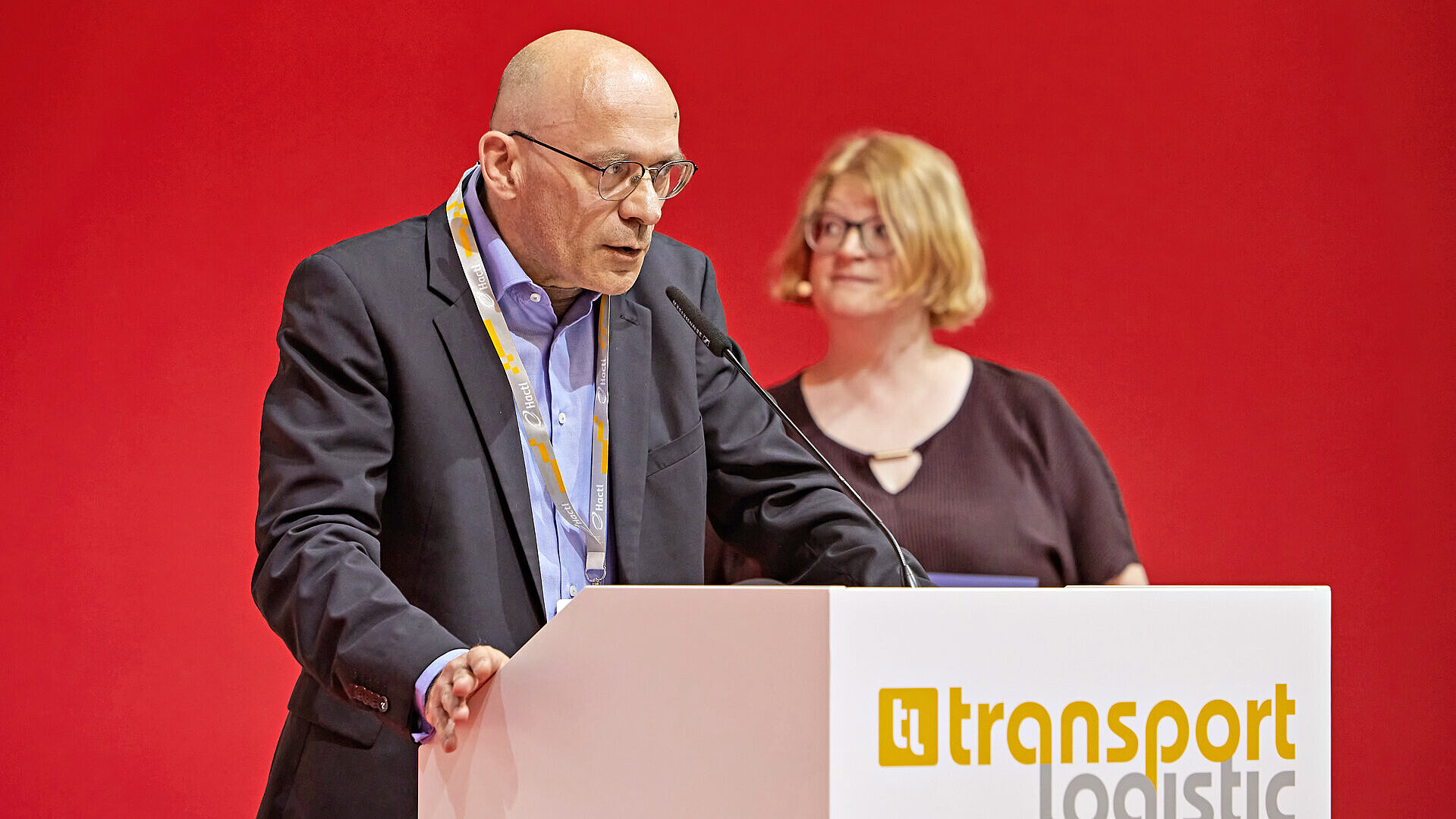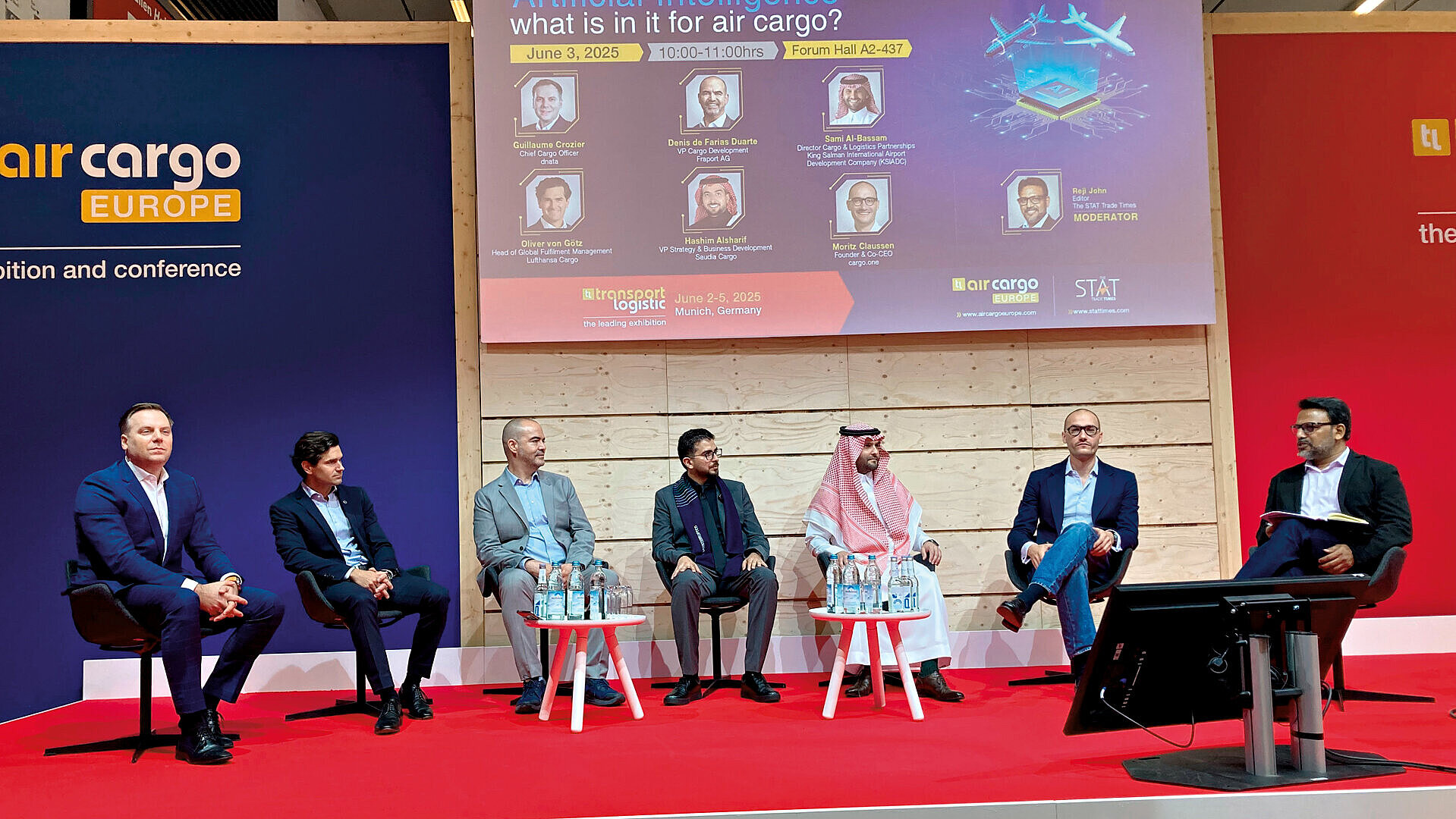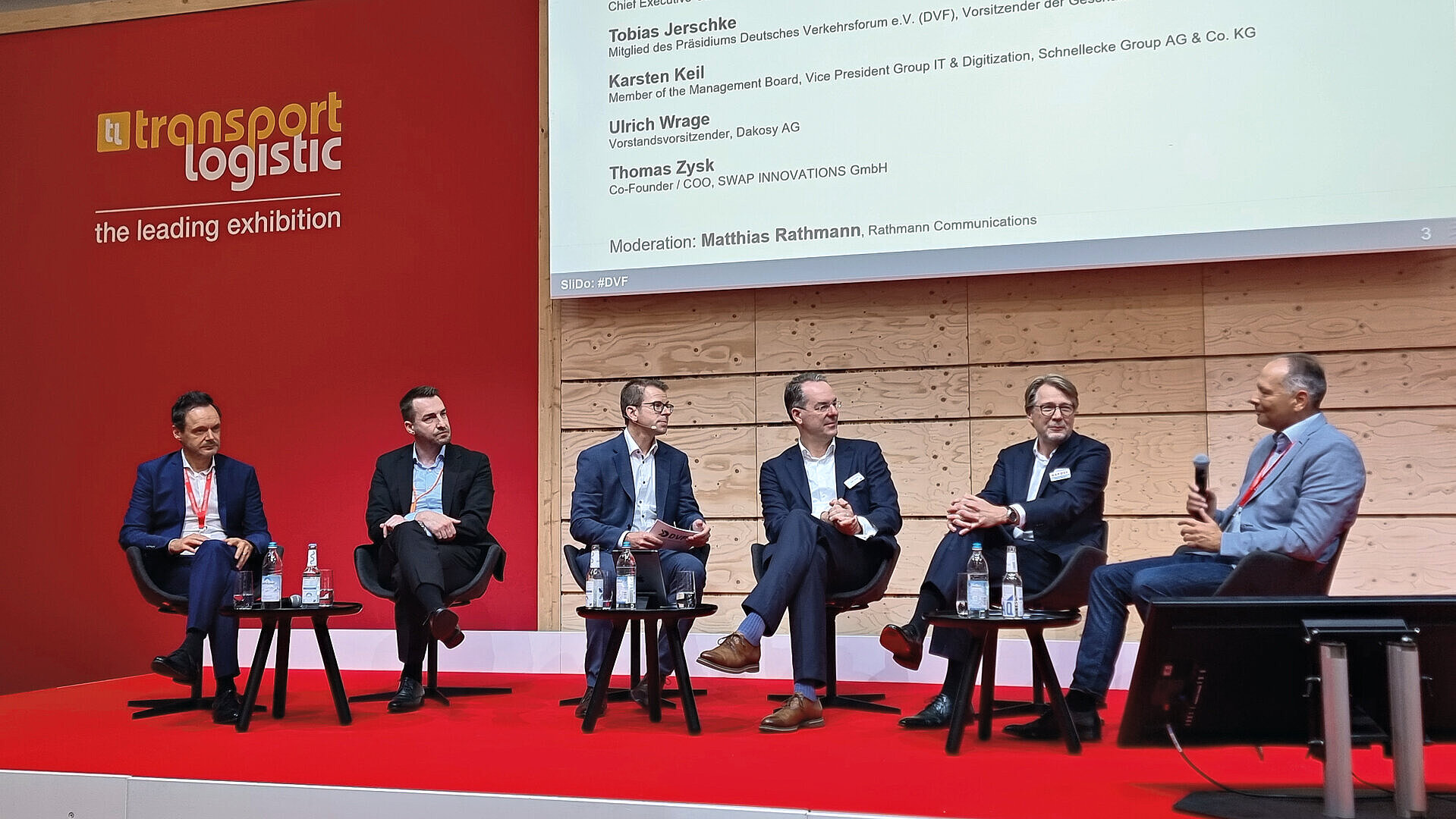
Navigating the crises

The shipping industry can already look back on years in a state of emergency: the coronavirus crisis and the blockade of the Suez Canal by the ‘Ever Given’ were followed by the wars in Ukraine and Gaza, increasing geopolitical tensions and the ongoing crisis in the Red Sea. With Donald Trump's second presidency, economic policy uncertainty has now increased significantly once again.
‘The most difficult thing for us is that the situation, for example with tariffs, is so unpredictable and therefore difficult to plan for,’ said Rolf Habben Jansen, CEO of Hapag-Lloyd, at the Marilog international conference for maritime logistics on Monday.
For example, freight volumes fell by 20 to 30 per cent after what Trump called ‘Liberation Day’, tripled after a short break and then fell again slightly last week. In figures, this meant that instead of 8,000 to 10,000 TEU per day, Hapag-Lloyd suddenly only handled 3,000 to 4,000 TEU and then suddenly 20,000 TEU. ‘Such fluctuations are of course very difficult for us,’ says Habben Jansen.
Antonios Rigalos, Managing Director of the sea freight purchasing network Shift X, has observed a similar dynamic in the development of volumes. While additional orders had to be placed for the Christmas business in 2024 due to the sailing around the Cape of Good Hope, there was no early peak season in 2025.
However, according to Jan Tiedemann, the question of whether the shipping industry is structurally suited to dealing with these challenges does not arise. ‘With a few exceptions, there is no alternative to shipping, as air freight is only possible in a few cases,’ said the chief analyst at the industry service Alphaliner. Container shipping, with a total global fleet capacity of currently around 30 million TEU and around four to five times the number of standard containers, must therefore cope with the uncertainty.
Habben Jansen emphasised that the fact that investments had been made in 2022 and 2023 meant that the supply chains had functioned despite the Houthi attacks in the Red Sea. ‘Otherwise we would have had just as big a crisis as Covid.’ There is also overcapacity at the North Range terminals," reported Angela Titzrath, CEO of terminal operator HHLA and Chairwoman of the Central Association of German Seaport Operators (ZDS). This is another reason why, despite all the challenges, no supply chain has been broken yet.
Overall, global trade will continue to grow, Habben Jansen expects. Volumes rose by around four per cent in both the first and second quarter, although no growth had been predicted. ‘It's difficult to get back to zero,’ says the CEO. Moreover, goods always find their way. Although the USA could become less important, countries such as South East Asia and India could gain in importance. Rhenus is becoming increasingly involved in Central Asia, for example: ‘There are always new and exciting markets,’ said Tobias Bartz, Chairman of the Rhenus Group's Management Board.
It has also always been the case that you earn more on some services and less on others. ‘The 2019 rate level should not be the benchmark,’ emphasised Habben Jansen. Looking at the period from 2010 to 2020, the freight rate was on average a few percentage points higher than the costs. However, according to Rigalos and Habben Jansen, many customers are always hoping for better rates and want to keep all their options open. They are also the ones who have to pay very high rates as a result.
Nevertheless, Rigalos expects a lot of uncertainty to remain. It is unlikely that carriers will use the Suez Canal on a large scale again in 2025, said Tiedemann. If they did, only 12 instead of 14 ships would be needed for a weekly service. According to Tiedemann, this would mean around 15 percent more available tonnage in virtual terms, but this could be compensated for by slower sailing. Despite all the challenges, Titzrath is optimistic about the future: “A lot of things will level out.”



